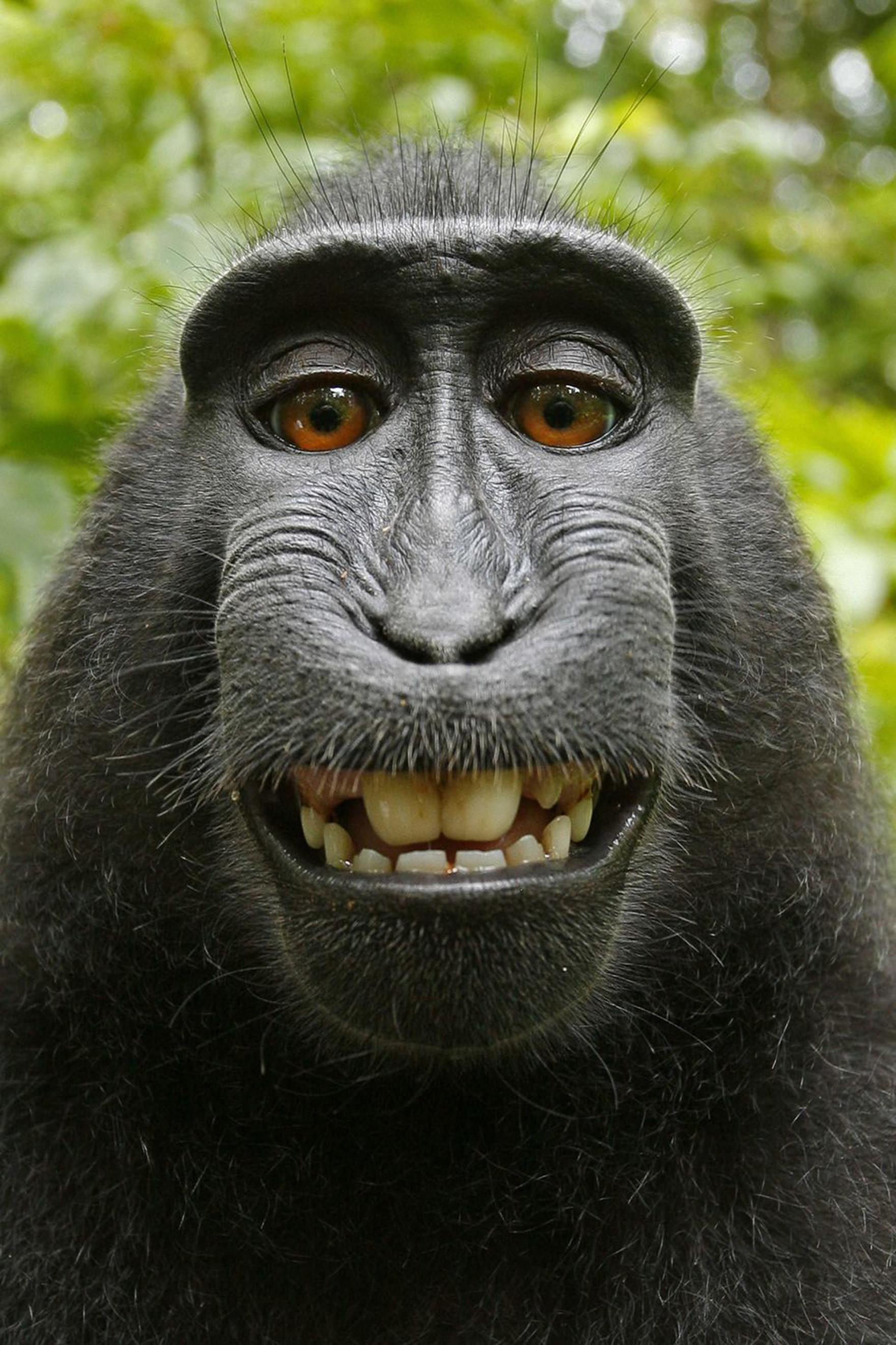Court: Dismissal of Monkey Selfie Copyright Infringement Case Affirmed
Naruto, the Indonesian macaque monkey turned world-famous photographer, will not have another day in court after the 9th Circuit Court of Appeals upheld the dismissal of a copyright infringement case brought on his behalf. In addition to showcasing one animal’s technical prowess with a camera, the case highlights the difficulties litigants experience while trying to protect animal rights in court.
Background of the Case
The case started when the intrepid simian stumbled across an unattended camera left by wildlife photographer David Slater and snapped a series of selfies that were eventually compiled into a book. Slater and Wildlife Personalities, Ltd. asserted copyright ownership of the photos, which resulted in the filing of a copyright infringement suit against them by PETA and Dr. Antje Englehardt as Naruto’s “next friend,” a status used to confer standing to sue to a party on behalf of an individual.
The case centered entirely on the issue of standing to bring suit. The lower district court concluded that animals do not have standing under the Copyright Act to sue for infringement. After the district court’s determination, Dr. Englehardt withdrew from the case, and PETA and Englehardt appealed. Before the 9th Circuit Court of Appeals ruled on the case, PETA reached a settlement with the defendants, and the parties asked for dismissal of the appeal. However, the 9th Circuit refused to dismiss, citing the considerable resources already expended on the case by the Court. The Court offered a scathing rebuke of PETA’s motives in the settlement, opining:
Naruto is left without an advocate, his supposed “friend” having abandoned Naruto’ s substantive claims in what appears to be an effort to prevent the publication of a decision adverse to PETA’s institutional interests. Were he capable of recognizing this abandonment, we wonder whether Naruto might initiate an action for breach of confidential relationship against his (former) next friend, PETA, for its failure to pursue his interests before its own.
The Court’s Ruling
The Court addressed three standing issues presented in the case: “Next-friend” standing, Article III “case or controversy” standing, and statutory standing under the Copyright Act.
Next-friend standing requires (1) that the petitioner is unable to litigate his own cause due to mental incapacity, lack of access to court, or other similar disability; and (2) the next friend has some significant relationship with, and is truly dedicated to the best interests of, the petitioner. The Court found that unlike Dr. Englehardt, who had known and monitored Naruto since birth, PETA did not have a relationship with Naruto that was “any more significant than its relationship with any other animal.” Instead, the Court said “PETA seems to employ Naruto as an unwitting pawn in its ideological goals.”
Regarding Article III standing, the Court reluctantly acknowledged that under its own precedent, animals like Naruto have standing. In Cetacean Cmty. v. Bush, the 9th Circuit found that “all of the world’s whales, dolphins, and porpoises (the “Cetaceans”), through their self-appointed lawyer, alleged facts sufficient to establish standing under Article III.” The Naruto court expressed its belief that “Cetacean was wrongly decided” but conceded it “cannot escape the proposition that animals have Article III standing to sue” absent “an intervening decision from the Supreme Court or from an en banc panel of this court” overturning Cetacean.
However, the Court ruled that under the statute at issue, the Copyright Act, Naruto did not have standing, and thus the case could not go forward. The Court relied on Cetacean’s simple rule: “if an Act of Congress plainly states that animals have statutory standing, then animals have statutory standing. If the statute does not so plainly state, then animals do not have statutory standing.” The Court found that because the Copyright Act does not expressly authorize animals to file copyright infringement suits under the statute, Naruto could not sue for infringement.

